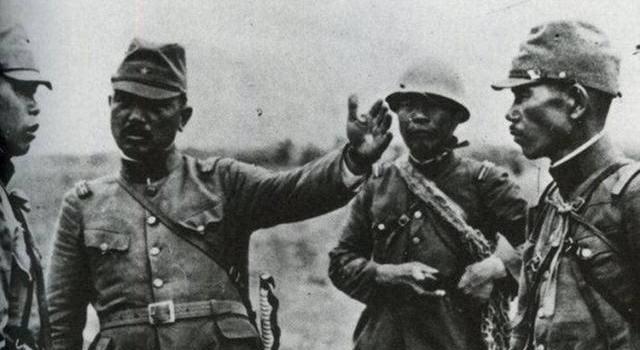In other words, friends who are more familiar with the history of China's War of Resistance Against Japanese Aggression should know that the whole Chinese nation began with the "918 Incident" in 1931 and lasted until the Japanese Emperor officially announced his unconditional surrender in 1945. After a total of 14 years of arduous resistance, it can be said that during this period, it can be said that the days were like years, and countless soldiers and civilians went forward to fight away the small Japan with a thousand knives at the cost of blood and lives, and defended the national dignity and territorial integrity. In the early days of the War of Resistance Against Japan, The foundation of China's military industry was extremely weak, and although the number of soldiers was large, the reliable weapons were extremely strong.

Looking at the little Japan, their weapons are very well equipped, and even the worst wing is equipped with enough equipment to crush most of the regular army of the National Revolutionary Army. In particular, from the outbreak of the All-out War of Resistance in 1937 to more than a year in 1938, most of China's territory fell, and Little Japan basically occupied the eastern part of China. Until 1941, the already mad little Japan attacked pearl harbor in the United States without declaring war, and the United States was forced to enter the war.
To say that before the Japanese sneak attack on the United States, their strength was at its peak throughout World War II, and they still maintained almost all the areas they had previously controlled, but they did not continue to expand their achievements. Speaking of this, Xiaobian once saw a post on the Internet, some netizens believe that even if Japan did not provoke the United States, a behemoth, but adopted a strategy of "seeking victory in stability", Japan would sooner or later be consumed in China.
They believed that the resources plundered by Japan in China could not be satisfied with and maintain the operation of the Japanese "war machine" at all, because at that time, China was a very backward agricultural country, there was almost no industrial system, and even if there were, it was only in some large cities, and the rest of the areas were almost all farmland.
Moreover, at the level of little Japan at that time, we could not detect the hidden oil fields in China, and we could not get oil supplies, which was the lifeline of war. Once the Americans cut off Japan's oil source, even if Japan does not provoke the United States, without oil sources, it will be sooner or later that they will die in China. In addition, some netizens have this view, they believe that if the United States did not participate in the war and did not aid China, then China would not be able to win the war in the end, and the old Chiang clique may surrender to Japan.
The main basis for their view is that in the 1944 Battle of Yuxianggui, 400,000 National Revolutionary Troops were defeated by 150,000 Japanese troops, resulting in the fall of more than 200,000 square kilometers of land in China, including 4 provinces and 146 cities. Of course, as far as the army of the old Chiang clique is concerned, their combat effectiveness is well known, most of them can only be passively defensive, and there are only a few troops that can take the initiative to counterattack, but the old Chiang clique has obtained the troops to file their own people, which is a first-class good hand.
In the end, when analyzing the Japanese army, they made two extremely serious mistakes in the strategy of the Japanese army, one was to change the previous strategy of "fighting from the north to the south" to fight from east to west; second, to adopt an extremely harsh occupation policy. With these two policies, it was also doomed that the Japanese would not have a good outcome in the end. By 1945, the Eighth Route Army and the revolutionary armed forces in the occupied areas had begun a partial counteroffensive, and the Japanese rule in the occupied areas had become unstable. It can be said that as long as Little Japan refuses to surrender, then as long as we have a certain amount of weapons supplies Chinese, we are fully capable of driving Japan out of China on our own.